Shaohua Hu, M.D.
Qiushi Distinguished Professor of Zhejiang University, Chief Physician, Doctoral Supervisor. Director of the Psychiatry Department of the First Affiliated Hospital of Zhejiang University School of Medicine.

With the continuous development of global medical technologies, the application of neuromodulation technology in the field of psychiatry has become increasingly extensive and in-depth. However, there are differences among different countries and regions in the mastery and application levels of this technology. In order to promote international medical exchanges and cooperation and enhance the professional level in the field of physical therapy in psychiatry globally, this training project is specially established.
This project aims to provide an international platform for students to systematically learn and practice neuromodulation technology, strengthen academic exchanges and cooperation in the aspect of physical therapy in psychiatry among countries, and promote the sharing and dissemination of the frontier research achievements in this field on a global scale.
This project is open to medical students, clinical doctors and relevant medical professionals from foreign medical institutions or universities around the world. Whether they are medical students who are eager to deeply learn professional knowledge at the early stage of their studies or doctors and professionals who have certain experience in clinical work and hope to improve their professional skills and expand their research horizons, they are all welcome to apply for participation.
1. Cutting-edge technology training: Provide comprehensive and in-depth training on physical therapy techniques such as neuromodulation, covering a variety of advanced technologies such as repetitive transcranial magnetic stimulation (rTMS) and transcranial direct current stimulation (tDCS), so that students can master the latest treatment methods.
2. Comprehensive clinical practice: Students have the opportunity to participate in clinical practice in department wards and different campuses, including patient assessment, physical therapy program formulation and implementation, and carry out treatment work under supervision.
3. In-depth participation in scientific research: Provide rich scientific research resources, students can participate in clinical research projects, get in touch with cutting-edge research methods and data analysis, and contribute to the development of the discipline.
4. Expert team guidance: A team of mentors composed of experienced and professional experts will provide students with personalized guidance and tap their clinical and scientific research potential.
5. Practical skills improvement: Focus on the cultivation of practical operation ability, and ensure that students are proficient in physical therapy skills through simulation training, case analysis and actual operation.
1. Participants can master the principles, operation procedures and clinical applications of physical therapy technologies such as neuromodulation, such as the application of rTMS, tDCS and other technologies in the treatment of mental illness.
2. Cultivate the clinical thinking and problem-solving ability of participants, so that they can independently conduct patient assessments and develop personalized physical therapy plans.
3. Through participating in scientific research projects, improve the research literacy of participants, understand the cutting-edge research trends in the field of physical therapy, and master research methods and data analysis skills.
4. Enhance the awareness of interdisciplinary cooperation among participants, and promote the integration of multidisciplinary knowledge such as psychology, psychiatry and neuroscience to better understand and treat patients.
5. It is expected that after training, participants will be able to apply the knowledge and skills they have learned to actual work, promote the development of physical therapy in the field of global mental health, and improve the treatment effect and quality of life of patients with mental illness.
The program provides a full-time, 1-month to 1-year training experience. In special circumstances, arrangements can be made for other lengths of training depending on your needs and interests.
• Visiting Scholar:
1. Degree requirements: Applicants must have a master's or doctoral degree in neuroscience, medicine or related fields.
2. Work experience: At least 2 years of experience in physical therapy, neuromodulation or related mental health work.
3. Professional qualification: Must have a relevant professional qualification certificate issued by the government or certification agency of the country or region, such as a medical license, etc., and the qualification certificate must be valid when participating in the project.
4. Proofs are required to be provided.
• Clinical Trainee:
1. Degree requirements: Master's or doctoral degree in psychiatry, neuroscience, or related majors.
2. Professional qualification: Must hold a qualification certificate such as a physician's license, a physical therapist's license, or a related professional field, and it must be valid during the project.
3. Language proficiency: Proficient in Chinese.
4. Proofs are required to be provided.
• Students:
1. Professional requirements: Must be a student of medicine, neuroscience or related majors.
2. School approval: You need to provide approval documents from the medical school/department, such as a letter of good standing from the dean's office, indicating that you are a current student, expected graduation date, and are in good academic standing and meet graduation requirements.
3. Course completion: You have completed relevant courses at the university, such as Basic Neuroscience, Introduction to Physical Therapy, 4. Psychiatry, Medical Imaging (part related to physical therapy), etc., with grades of good or above.
4. Proofs are required to be provided.
1. Physical therapy methods for mental illness, such as neuromodulation therapy for depression, schizophrenia, obsessive-compulsive disorder, etc.
2. Neuromodulation technology, including the principles, operation and application of rTMS, tES, etc.
3. The combined application of physical therapy technology and other therapies (such as psychotherapy, drug therapy).
4. Research methods and techniques related to physical therapy, such as the application of neuroimaging in the evaluation of physical therapy effects.
5. The application of multidisciplinary collaboration in physical therapy, involving neuroscience, psychiatry, rehabilitation medicine and other fields.
Monday
Week 1: Project introduction and welcome ceremony, introducing the project overview, goals, schedule and precautions.
Weekly: MDT meeting, discussing complex cases and formulating comprehensive treatment plans; complex case research, analyzing treatment difficulties and solutions.
Tuesday
Weekly: Outpatient observation, learning patient assessment and diagnosis process; academic lectures, covering cutting-edge physical therapy technologies and research progress; physical therapy basic skills training, such as equipment operation and parameter setting.
Every two weeks: One-on-one tutoring by mentors, providing personalized guidance for trainees' problems.
Wednesday
Weekly: Clinical rounds, observing patient treatment progress and adjusting plans; physical therapy technology operation practice, actual operation under the guidance of mentors.
Every two weeks: Simulation treatment training to improve trainees' emergency response capabilities and operational proficiency.
Thursday
Weekly: Complex case discussion, sharing experiences and insights; case analysis seminars, in-depth analysis of typical cases.
Every two weeks: Special task training, such as special training for specific diseases or technologies.
Friday
Weekly: Literature reading meeting, sharing the latest research results; clinical skills training, improving the level of treatment technology; special project practice, participating in department-specific physical therapy projects.
The last week: Summary and reflection, students report their gains and experiences; feedback session, collect student opinions through online surveys and on-site Q&A.
• Practical operation assessment: evaluate instrument operation, treatment implementation and other skills in simulation or real scenarios.
• Scientific research project participation assessment (optional): evaluate the performance and results of trainees participating in scientific research in the project.
• Regular interview feedback: The mentor communicates with the trainees one-on-one every week, provides verbal feedback and answers questions.
• Written comprehensive evaluation: Provide written reports at the middle and end of the training, summarize performance and provide development suggestions.
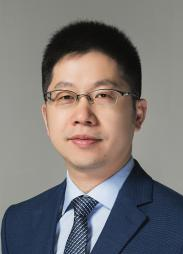
Qiushi Distinguished Professor of Zhejiang University, Chief Physician, Doctoral Supervisor. Director of the Psychiatry Department of the First Affiliated Hospital of Zhejiang University School of Medicine.
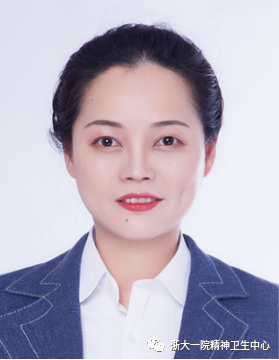
Chief Physician, Doctoral Supervisor. Deputy Director of Psychiatry Department of the First Affiliated Hospital of Zhejiang University School of Medicine, Deputy Director of the Zhejiang Provincial Key Laboratory for the Diagnosis, Treatment, Prevention and Control of Mental Disorders.

Deputy Chief Psychotherapist, Psychiatry Department of the First Affiliated Hospital of Zhejiang University School of Medicine. Head of the Psychological Assessment and Treatment Sub-specialty; Registered Psychotherapist of the National Health Commission; National Second-Level Psychological Counselor
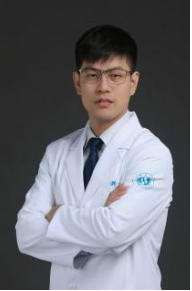
Committee member and Secretary-General of Basic and Clinical Committee of the Brain-Gut-Microbiota Axis, Zhejiang Mathematical Medicine Society. Secretary-General of Biopsychiatry Professional Committee, Zhejiang Biomedical Society. Committee member of Neuromodulation Professional Committee, Zhejiang Neuroscience Society
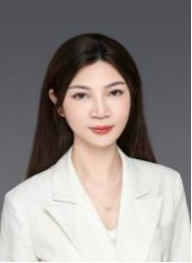
Specialized nursing in Psychiatry Department of the First Affiliated Hospital of Zhejiang University School of Medicine, Nurse-in-Charge. Neuromodulation Physiotherapist.
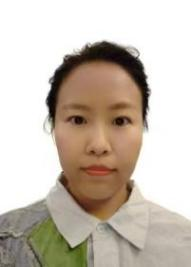
Bachelor’s degree, specialized nurse. Job responsibilities: heart rate variability analysis, psychological assessment, near-infrared thermal imaging examination, sleep apnea monitoring, transcranial magnetic stimulation therapy, transcranial electrical stimulation therapy, etc.
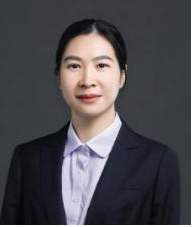
Specialized nurse in Psychiatry Department, Nurse-in-Charge. Holder of a professional training certificate in clinical psychology and a National Certificate of Psychological Counselor (Level 3). Mainly responsible for outpatient psychological assessments, sleep tests, near-infrared examinations, as well as TMS and TDCS treatments. Takes on the teaching tasks for trainees and interns.

Physical Therapist at the First Affiliated Hospital of Zhejiang University School of Medicine
The program is free of charge.